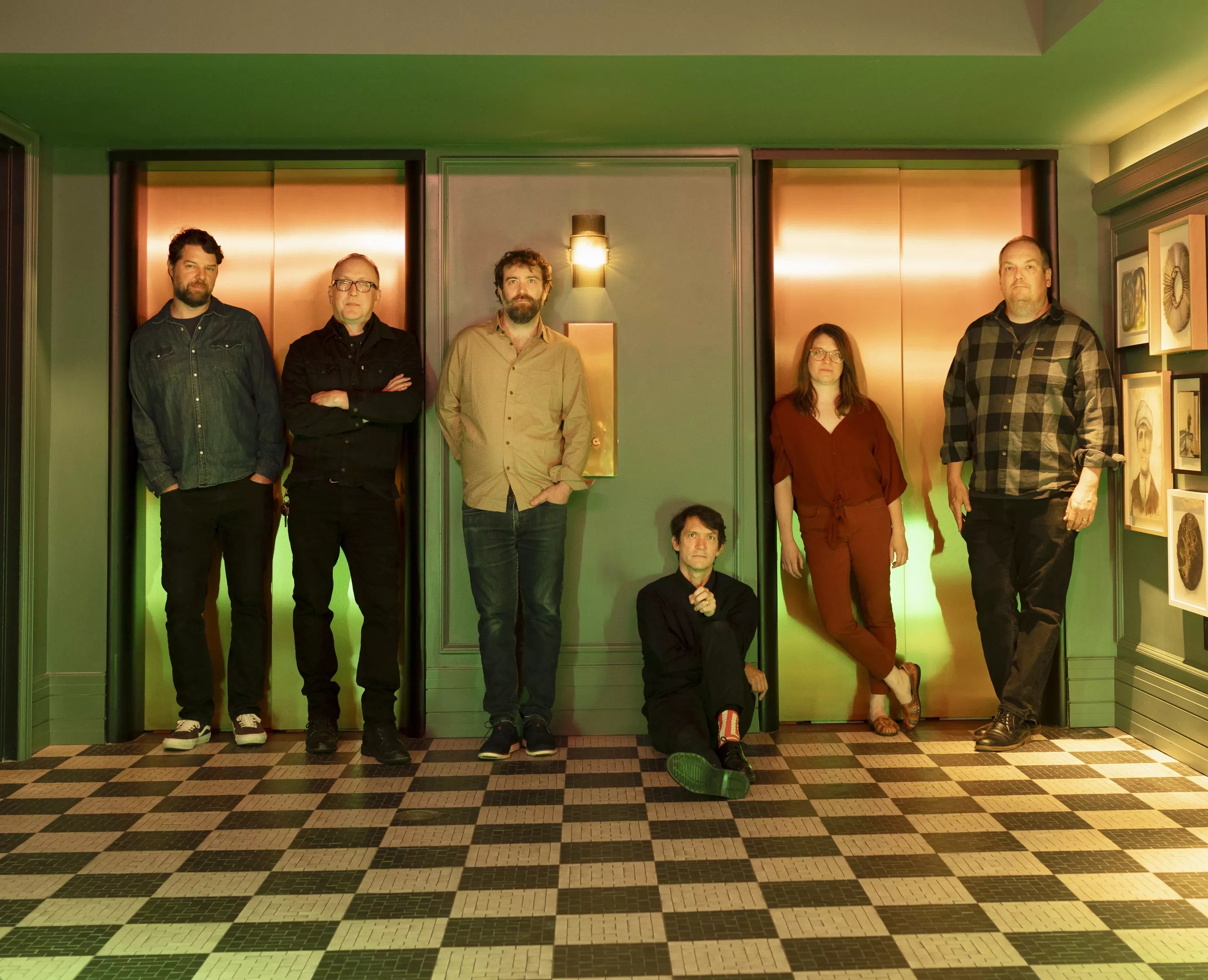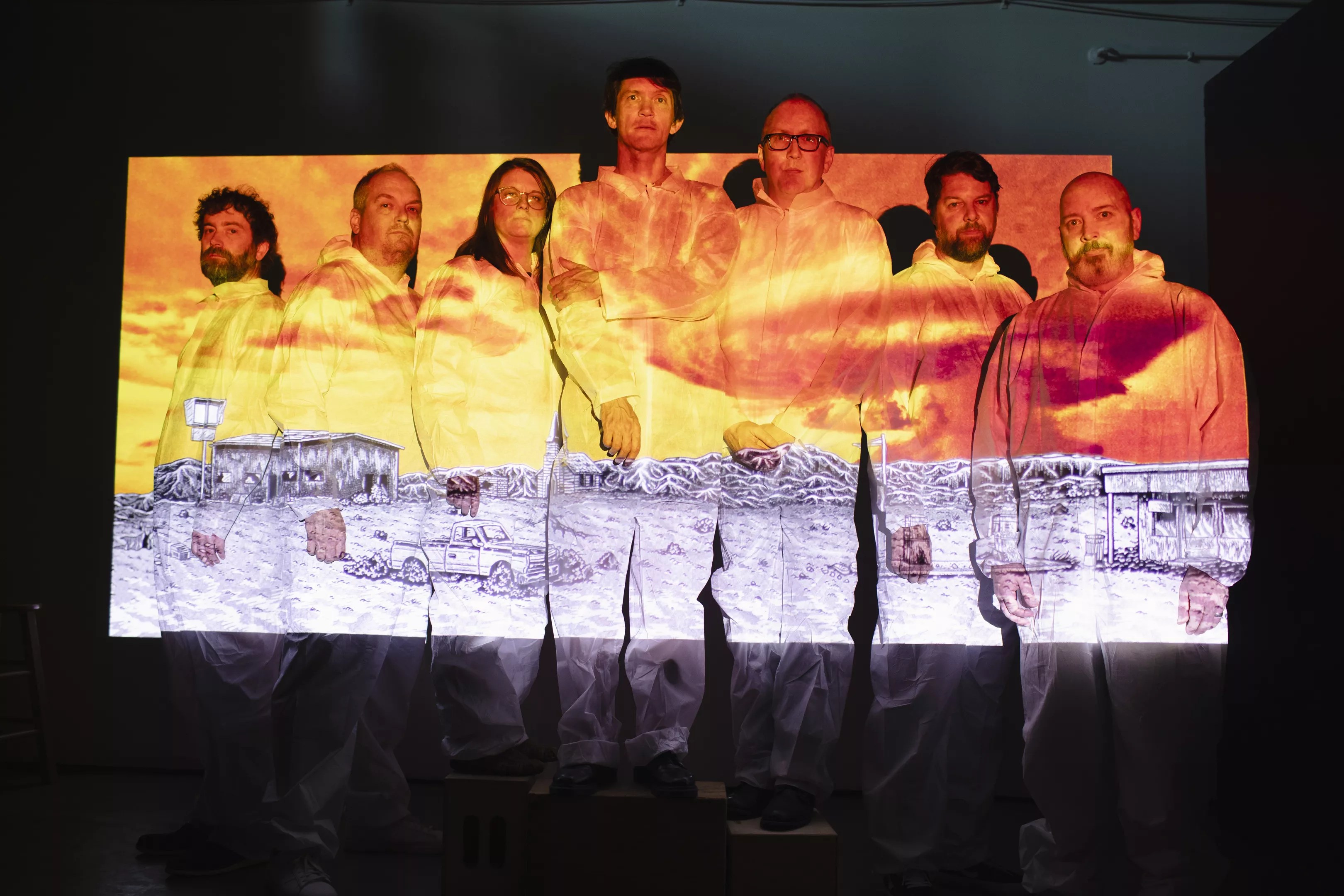
Bill Sitzmann

Audio By Carbonatix
“When I was young, I was infinite,” Cursive songwriter/guitarist/vocalist Tim Kasher wistfully croons on “Up and Away,” the second track on Devourer, the post-hardcore outfit’s latest record. In the mid-late ’90s, Cursive burst out of the fertile Omaha, Nebraska, indie-rock scene along with labelmates Bright Eyes and the Faint.
Kasher’s remembrance of youth’s infinite possibilities rings familiar to just about anyone over the age of thirty, and that also underscores Cursive’s staying power. Aggressive, guitar-forward bands have almost completely disappeared from the mainstream, replaced by lab-engineered pop and dance music.
“We didn’t realize how good we had it as far as guitar-driven music is concerned,” Kasher tells Westword, shortly before the band takes off on a tour that will bring Cursive to the Gothic Theatre on January 31. “It ran the radio. I would love to see that come back, not just for me, but for society. There’s just something about EDM and electronic pop that’s not as aggressive or as antagonistic, and those are important emotions to get across.
“Gen Z or Gen Alpha, I want to see their culture fight back and do it with your music, do it with your film,” he continues. “A really loud, crunchy guitar is a great way to do it. I believe that a fifteen-year-old can listen to a song like ‘Up and Away’ and be like, ‘Oh, interesting, I do feel like life is infinite, and I guess maybe I should brace myself that I might not always feel that way.'”
Devourer is a decidedly middle-aged record. Kasher turned fifty this past summer, and while the album has plenty of the harshly critical self-reflection the band is known for (alongside its signature angular guitar riffs and cello-borne dramatism), there’s also a feeling of despair as Kasher addresses impending global disaster, the politics of consumerism and waste, and loss.
Kasher’s songwriting, in Cursive as well as his sideproject the Good Life and his solo work, is thick with self-criticism. On Devourer‘s opening track, “Botch Job,” Kasher laments the damage he’s wreaked on his body – a refrain that echoes 2003’s “The Ugly Organ” – singing, “Your gut’s an old garbage can / Liver’s a purple bruised punching bag / Botch job, you’re falling apart / You never could hack the battering ram.”

Cursive in middle age
Bill Sitzmann
His songwriting effort itself is often in the crosshairs, as on “Imposturing,” in which he addresses himself in the lines, “You don’t need your family to read / The agony you’ve inflicted / On yourself / The more you push ’em away / The more you’ll sell / Ain’t that thе reason you write / Your hangdog and forthright songs?”
Kasher laughs when asked about writing songs. “I try to be aware of redundancy,” he says. “So I do kind of have a running tally in my head of, ‘How long has it been since you really attacked the self-reflexive nature of songwriting?'”
The angst of intimate relationships is mostly absent from the new Cursive record, but longtime fans are sure to hear a favorite or two from the band’s 2000 divorce-themed LP, Domestica, on the upcoming tour. In 2023, the band did a full-on throwback Domestica tour playing the album front-to-back (Denverites may have caught the show at the Bluebird Theater that spring).
“It’s a thrill,” Kasher says of playing his 25-year-old songs to appreciative audiences. “I still feel the need to convince people of that. There tends to be a dubious attitude about whether this is really what artists want to do or not. I wouldn’t be as comfortable doing album nostalgia plays like that if we weren’t continuing to hurtle forward with other ideas.”
He adds, “If somebody in 2000 could have said, ‘Hey, what if I tell you that people would want to hear this album in its entirety from front to back in the 2020s?’ I just would have been totally gobsmacked, like, ‘Can we fast-forward to 2020 right now?'”
But Devourer is the band’s current focus as the tour launches in Fort Collins at the Aggie Theater on January 30, with the show at the Gothic the following night. Pile is the opener.
Cursive’s core has always been Kasher, guitarist/vocalist Ted Stevens, and bassist Matt Maginn, but the band is a seven-piece these days, replete with synths and cello (cello has been a hallmark stretching back to the 2001 EP Burst and Bloom).
Sonically, Devourer is a more eclectic tapestry of songs than Cursive’s last two albums, 2018’s Vitriola and 2019’s Get Fixed, which were both heavier across the board. During the pandemic, Kasher listened to his entire catalogue (“I’m not really a Cursive listener,” he points out), and Devourer resulted.
“I think I had lost a little bit of scope of what Cursive is, grand in the larger sense,” Kasher says, “and subconsciously I want to align the catalog a bit more.”
Cursive, 9 p.m. Friday, January 31, Gothic Theatre, 3263 South Broadway, Englewood. Pile opens. Tickets are $41.45.